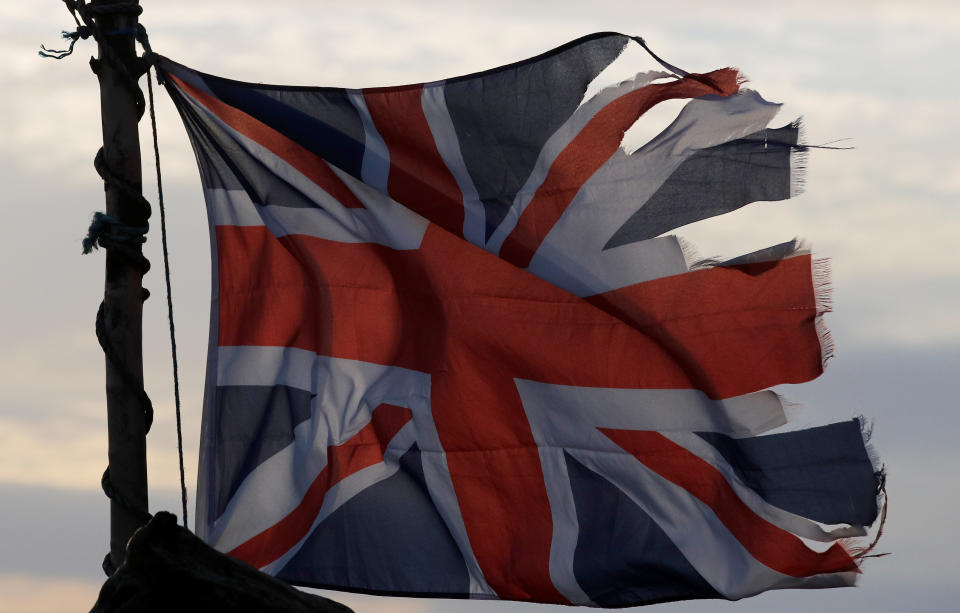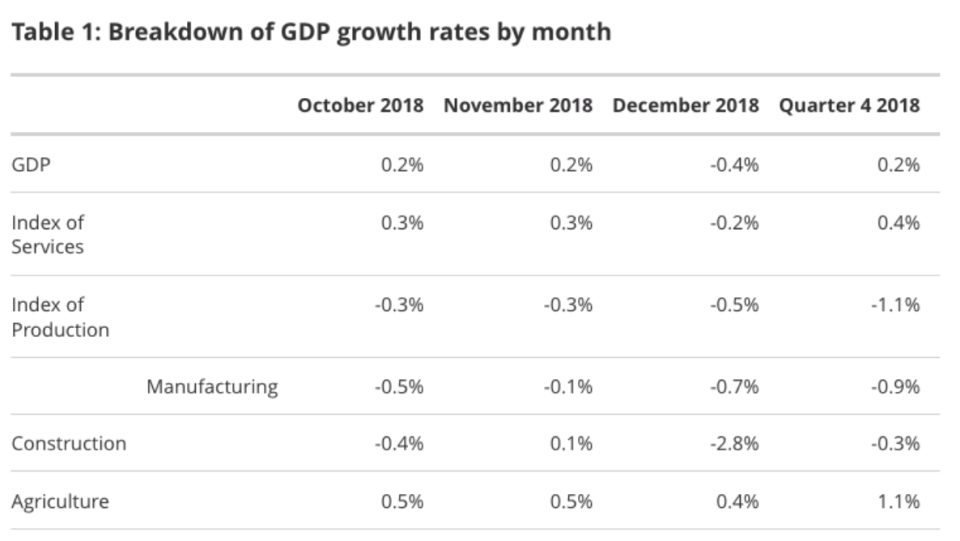Brexit helped punch a hole in UK economic growth

UK economic growth slowed in the fourth quarter of 2018 amid disruption to retail and industrial sectors borne from Brexit related fears. Global slowdown fears and the seasonal effect of Black Friday on retailers also impacted economic growth.
The UK economy grew just 0.2% in the three months to December. General consensus leading up to the fourth quarter indicated that economic growth would be at 0.3% quarter-on-quarter and 1.4% year-on-year. So, all-in-all, the figures are worse than what economists expected. UK 2018 economic growth was the weakest since 2012.
These figures follow a 0.4% growth rate for the three months to October and a 0.6% rise in third quarter GDP.
Economists widely emphasised that the dampened economic growth figures shouldn’t be read as the UK heading for a recession. Other factors, including the US-China trade war and weakness in other countries in the eurozone — such as Italy, which has fallen into a recession — intensified business fears.
The economists said Black Friday, 29 November last year, had a seasonal effect on retailers. The number of companies stockpiling goods, such as supermarkets and manufacturers, also played a part in the numbers because the PMI calculation includes buying volumes. If you strip out that factor, the output index actually fell in December.

It is also likely that sector growth, such as oil and gas, slowed due to events such as the Buzzard oil field closure. That field accounts for around 13% of total UK oil production. On top of that, the Society of Motor Manufacturers and Traders (SMMT) put the UK auto industry on “red alert” after investment in the sector almost halved in 2018 and the threat of a no-deal Brexit grows. The SMMT also recently reported that December car production recorded a decline of 0.3%.
The Institute for Fiscal Studies (IFS) warned on Monday that “a disorderly Brexit would be likely to lead to lower economic growth in the short and long run.” The IFS said in its latest report, entitled The outlook for the 2019 Spending Review, that a no-deal Brexit — which would happen if the UK crashes out of the European Union without a deal in place — would also hit several industries disproportionately.
Thinktank Centre for European Reform (CER) also said recently that voting for Brexit has caused the economy to shrink 2.3% smaller than if Brits had voted to remain in the EU.
Last month, UK business investment suffered its biggest fall in three years due to Brexit uncertainty. The IMF also said in November that the Brexit process has affected business investment in the UK.
Britain’s biggest business lobby group CBI, representing 190,000 firms, has released a study showing that 80% of companies say that Brexit has hit investment. The Office for National Statistics (ONS) revealed in September that businesses have invested £22bn less over the last two and a half years because of Brexit uncertainty.

 Yahoo Finance
Yahoo Finance 
